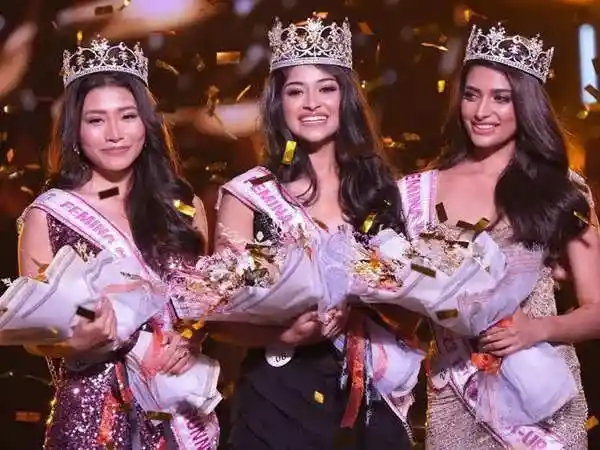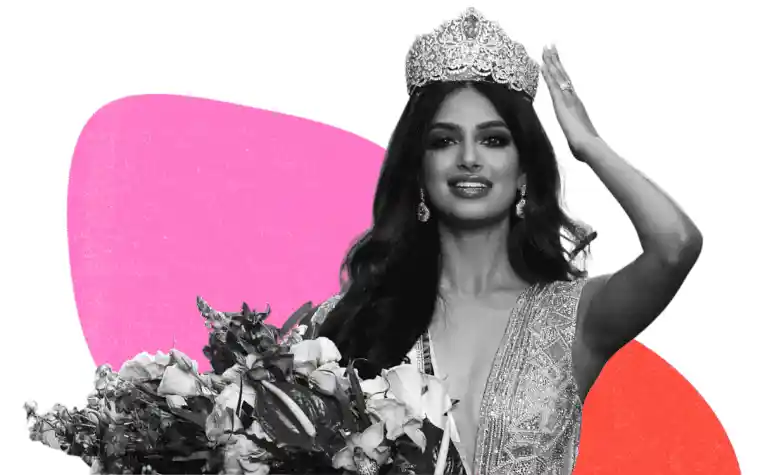Femina Miss India: A Platform for Women, of Women
From home to the world, the journey of women has not been easy. Even a century back, seeing women on the stage or runway was unthinkable. Beauty pageants have allowed women to represent the youth and women of the nation, in particular. With the evolution of the beauty industry, these pageant shows have been under debate.

Winners of Femina Miss India 2023; Image Source: The Economic Times
Beauty pageants have been a part of our culture since time immemorial. The “Judgement of Paris'' is believed to be the first beauty contest in essence, when Paris of Troy had to choose “the fairest one” between Hera, Athena, and Aphrodite, the Greek goddesses of marriage, war, and beauty respectively. It was a pivotal event in Greek mythology because Paris’s choice of Aphrodite culminated in the devastating Trojan War. Thankfully, beauty contests of today don’t end up in wars.
With the growth of the beauty and entertainment industry, the two concepts have become inseparable. The tradition of ‘Miss India’ started in 1947, the year of independence. It is sponsored by Femina, a women's magazine. Esther Victoria Abraham, better known as Pramila, was crowned as the first Miss India. She went on to become an actress, model, and the first female film producer in Bollywood.
With time, the contest has undergone incredible changes.Since the 1970s, the winner and runner-up are sent to compete further in the Miss Universe and Miss World competitions respectively. India received her first major thrust to international fame in pageantry in 1994. Sushmita Sen had been crowned as Miss India and went on to win the Miss Universe title, while Aishwarya Rai, the first runner-up, had brought home the title of Miss World, all in the same year.
The Miss India contest highlights their belief in ‘beauty with a purpose’. Participants must not only be “beauties” representing their state and cultures. They must be wise, tenacious, graceful, and intelligent. By selecting participants from a wide pool of applicants, the competition ensures fairness of chance and diversity, reflecting the true character of India. A national platform, the pageant boosts the confidence of young, ambitious women who want to make a mark in the world. Contrary to popular assumption, this pageant is not just an inroad to the entertainment industry. It empowers women from all walks of life to achieve their dreams.
Femina Miss India has produced stellar personalities in the past six decades. A pinnacle of beauty and grace, several former champions of this pageant have achieved immense glory and success post-competition. From Reita Faria, the physician-cum-model and first Asian to win Miss World, to Celina Jaitley, an LGBTQIA+ activist, from Priyanka Chopra, Hollywood actress and entrepreneur, to Juhi Chawla, a Bollywood actress, the winners have proven that their success wasn’t limited to the Miss India stage. Manushi Chillar, the 2017 Miss India winner, was pursuing her MBBS degree when she won the crown. She also brought the Miss World trophy, becoming the sixth Indian Miss World.

Beauty Pageants and Inclusivity, an age-old debate; Image Source: The Swaddle
However, with the advent of social media and changing beauty standards, conversations about the problematic nature of beauty pageants are happening. Though this is not a new phenomenon, it has grown stronger in the last few years, making the concept of pageantry less popular than before. These debates question the inherent bias present in all competitions of beauty that have conditions of age, height, weight, and complexion. Marital status is also a factor of restriction.
Unhealthy and idealistic notions of beauty and physicality have been at the center of pageants. In 2019, a collage of the finalists of the Miss India contest was criticized because of how similar the women looked — fair skin, long, black hair — a point that is particularly striking in a country where fairness is still coveted, despite the diversity of cultures and communities.
The whole point of a "Miss India" seems redundant when the contestants selected only adhere to specific facial and physical features. It takes away the true essence of diversity and representation. Even today, one can notice that the beauty standards have scarcely changed for the Miss India contest. Also, most beauty pageants cater to the "male gaze" and contribute to patriarchal systems and age-old beauty standards that are discriminatory and exclusive. Gender discrimination in such competitions is also becoming a site of contention because Femina Miss India doesn't allow transgender women to participate. On the other hand, Miss Diva has taken a progressive stance, allowing trans women to participate from 2021.
Sathya Saran, former editor of Femina and a vital member of the Miss India management team in the earlier days, believed that "the pageant was more of a personality contest than a beauty contest. To be beautiful was not merely about classically good-looking, but being able to present oneself well and embody Indian values." A contender of Miss India 2015, Rewati Chetri hailed from an infamous hill station of Assam. Hundreds of miles away from the mainstream, it was a distant dream for Chetri. However, representing her state boosted her confidence and self-image greatly, pushing her to a career in modelling.
While it is true that beauty pageants have played a crucial role in bringing women out into the world, it still holds on to some of the restrictive beauty standards of yore. It makes the whole idea of 'beauty' contests rather problematic because progressive stances on the ideals of beauty prefer not to be discriminatory and accepts each culture and community's unique physical features. By accepting certain features over others, it reflects deep-rooted prejudice and in this new world of intersectionality and feminism, such an action is simply unacceptable.


